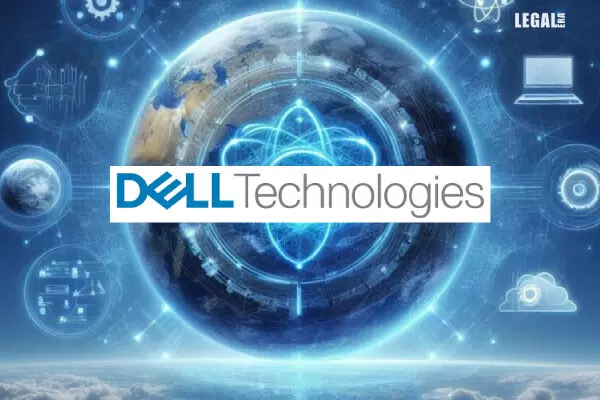- Home
- News
- Articles+
- Aerospace
- Artificial Intelligence
- Agriculture
- Alternate Dispute Resolution
- Arbitration & Mediation
- Banking and Finance
- Bankruptcy
- Book Review
- Bribery & Corruption
- Commercial Litigation
- Competition Law
- Conference Reports
- Consumer Products
- Contract
- Corporate Governance
- Corporate Law
- Covid-19
- Cryptocurrency
- Cybersecurity
- Data Protection
- Defence
- Digital Economy
- E-commerce
- Employment Law
- Energy and Natural Resources
- Entertainment and Sports Law
- Environmental Law
- Environmental, Social, and Governance
- Foreign Direct Investment
- Food and Beverage
- Gaming
- Health Care
- IBC Diaries
- In Focus
- Inclusion & Diversity
- Insurance Law
- Intellectual Property
- International Law
- IP & Tech Era
- Know the Law
- Labour Laws
- Law & Policy and Regulation
- Litigation
- Litigation Funding
- Manufacturing
- Mergers & Acquisitions
- NFTs
- Privacy
- Private Equity
- Project Finance
- Real Estate
- Risk and Compliance
- Student Corner
- Take On Board
- Tax
- Technology Media and Telecom
- Tributes
- Viewpoint
- Zoom In
- Law Firms
- In-House
- Rankings
- E-Magazine
- Legal Era TV
- Events
- Middle East
- Africa
- News
- Articles
- Aerospace
- Artificial Intelligence
- Agriculture
- Alternate Dispute Resolution
- Arbitration & Mediation
- Banking and Finance
- Bankruptcy
- Book Review
- Bribery & Corruption
- Commercial Litigation
- Competition Law
- Conference Reports
- Consumer Products
- Contract
- Corporate Governance
- Corporate Law
- Covid-19
- Cryptocurrency
- Cybersecurity
- Data Protection
- Defence
- Digital Economy
- E-commerce
- Employment Law
- Energy and Natural Resources
- Entertainment and Sports Law
- Environmental Law
- Environmental, Social, and Governance
- Foreign Direct Investment
- Food and Beverage
- Gaming
- Health Care
- IBC Diaries
- In Focus
- Inclusion & Diversity
- Insurance Law
- Intellectual Property
- International Law
- IP & Tech Era
- Know the Law
- Labour Laws
- Law & Policy and Regulation
- Litigation
- Litigation Funding
- Manufacturing
- Mergers & Acquisitions
- NFTs
- Privacy
- Private Equity
- Project Finance
- Real Estate
- Risk and Compliance
- Student Corner
- Take On Board
- Tax
- Technology Media and Telecom
- Tributes
- Viewpoint
- Zoom In
- Law Firms
- In-House
- Rankings
- E-Magazine
- Legal Era TV
- Events
- Middle East
- Africa
Delaware Supreme Court Upholds $267 Million Fees To Five Law Firms In Dell Case

Delaware Supreme Court Upholds $267 Million Fees To Five Law Firms In Dell Case
The hourly rate of $5,000 has been described as ‘high-end’
The Delaware Supreme Court has ruled that five law firms should receive a whopping $267 million in fees for obtaining a $1 billion settlement for shareholders of Dell Technologies.
Considered as one of the largest ever for US shareholder litigation, the payment was argued as “a windfall.”
The plaintiffs alleged that in 2018, they and other shareholders were short-changed in a controversial $23.9 billion transaction that marked Dell's return as a publicly traded company. The settlement announced in 2022, averted a trial.
In 2023, a Court of Chancery awarded a $267 million fee from the settlement to five law firms that brought the lawsuit. However, a group of large investors led by Pentwater Capital Management had requested the apex court to reduce the fee and base it on a model used in federal courts.
The shareholder law firms are Labaton Keller Sucharow, Quinn Emanuel Urquhart & Sullivan, Friedman Oster & Tejtel, Andrews & Springer, and Robbins Geller Rudman & Dowd.
The defendants were represented by nine law firms.
As settlements of federal securities litigations rise, the percentage of attorneys' fees declines. In the 10 largest cases, the lawyers collected less than 10 percent of the recoveries as fees, compared to 27 percent in the Dell case.
Chief Justice Collins Seitz said the potential for large fees provides lawyers an incentive to take tough cases but risk getting paid nothing if they lose.
The hourly rate in the Dell case came out to $5,000, described as ‘high-end’.
Chief Justice Seitz stated, "It was a highly contentious litigation, spanning two-and-a-half years, with nearly 100 lawyers appearing for the defense. The underlying transaction was complex, and the counsels achieved an excellent settlement for the class on the eve of the trial."
The Dell case fees is the second largest in Delaware, the legal home to a majority of publicly-traded companies, and would rank fifth largest in federal securities litigation.
It reflects the predictability of the court system, which relies on specialized judges instead of juries in shareholder litigation. However, the courts' approach to legal fees has been a point of contention for business groups.
While warning that huge fee awards could become windfalls, Seitz added that it was legitimate to ask, "Whether the public would ever believe that lawyers must be awarded hundreds of millions of dollars for a case to motivate them to pursue representative litigation, or to discourage the counsels from settling cases for less than they are worth."
Meanwhile, a Delaware trial court is debating two other requests for huge legal fees in cases involving Tesla. The deliberations implied that it could help the carmaker's efforts to fight those fees.
Tesla is fighting fee requests for $230 million in a case that alleged its directors were overpaid and around $7 billion in a matter challenging CEO Elon Musk's $56 billion pay package.
The fee requests work out to hourly rates of $10,690 and more than $280,000.
However, Judge Chancellor Kathaleen McCormick, has not mentioned when the fee requests would be ruled.



